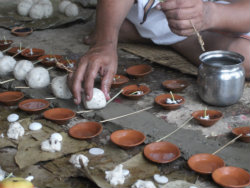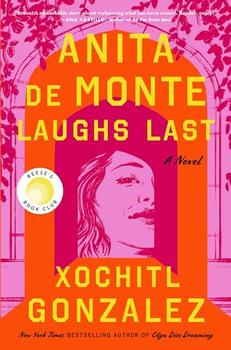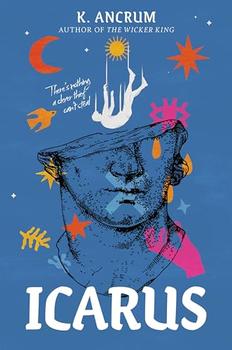Summary | Excerpt | Reading Guide | Reviews | Beyond the Book | Read-Alikes | Genres & Themes | Author Bio

 Book Reviewed by:
Book Reviewed by:
Sharry Wright
Buy This Book
This article relates to The Gracekeepers
In The Gracekeepers, the Graces are caged birds left to starve to death, floating above the site where a dead person was put to rest in the sea. The death of the bird indicates when the family can stop mourning. Mourning the passing of a loved one is a natural and necessary process that has different rules, guidelines and rituals depending on ones beliefs, offering structure for the grieving. Here are three that you might be less familiar with.
Buddhists believe that the dead are reincarnated, so death is viewed as a change rather than an end. In Tibetan Buddhism, just before and right after death, instructions from the Bardo Thodol, known in the West as The Tibetan Book Of The Dead, are read aloud to provide guidance through the dying process and on to rebirth. After cremation, mourners say prayers daily for the 49-day funereal period that contains the seven cycles of "bardo," the transitory state between death and rebirth.
 Hindus also believe in reincarnation. Mourning rituals and time varies according to sect, region, cast and family tradition, but many Hindus limit it to 31 days, so their grief doesn't damage the soul in its new incarnation. During this 31-day period, the family of the deceased is considered impure and must refrain from visiting sacred sites, performing religious ceremonies, giving alms or attending religious festivals. The family often wears white, bathes twice a day and eats a single vegetarian meal daily during the mourning period. Usually, on the 31st day, a ceremony takes place. (Although some do this on the 11th and the 31st after cremation, some on the 15th day) The sapindikarana ceremony is performed by a priest who ritually purifies the house, then makes one large and three small pindas (rice balls), the large to represent the deceased, the three small to represent the father, the grandfather and the great-grandfather. The large rice ball is divided into three pieces and joined with the three smaller to represent the deceased uniting with the ancestors. At the end of this ceremony, the mourning period is over and normal daily life is resumed. Each following year on the anniversary of the person's death, a special ceremony called shraddha is performed once again offering a special meal to close family and friends and pindas to the ancestors. Typically most Hindus take up the celebration of religious festivals only after this full year. Hindus also routinely put out small portions of rice at the start of every meal as offerings to the deceased, food that is eaten by birds.
Hindus also believe in reincarnation. Mourning rituals and time varies according to sect, region, cast and family tradition, but many Hindus limit it to 31 days, so their grief doesn't damage the soul in its new incarnation. During this 31-day period, the family of the deceased is considered impure and must refrain from visiting sacred sites, performing religious ceremonies, giving alms or attending religious festivals. The family often wears white, bathes twice a day and eats a single vegetarian meal daily during the mourning period. Usually, on the 31st day, a ceremony takes place. (Although some do this on the 11th and the 31st after cremation, some on the 15th day) The sapindikarana ceremony is performed by a priest who ritually purifies the house, then makes one large and three small pindas (rice balls), the large to represent the deceased, the three small to represent the father, the grandfather and the great-grandfather. The large rice ball is divided into three pieces and joined with the three smaller to represent the deceased uniting with the ancestors. At the end of this ceremony, the mourning period is over and normal daily life is resumed. Each following year on the anniversary of the person's death, a special ceremony called shraddha is performed once again offering a special meal to close family and friends and pindas to the ancestors. Typically most Hindus take up the celebration of religious festivals only after this full year. Hindus also routinely put out small portions of rice at the start of every meal as offerings to the deceased, food that is eaten by birds.
In the Russian Orthodox Church, the body of the deceased is laid out, uncovered, for three days, and the funeral is held three days after death. The funeral includes a memorial dinner with family and friends. Another service and memorial dinner is held on the ninth day when it is believed that the soul leaves the body of the deceased. The 40th day after death, when the soul departs for the next world, is also marked with another service and dinner. At each dinner, a glass of vodka covered with a slice of black bread is put out for the deceased — a mirroring of the Russian tradition of breaking black bread when meeting someone for the first time.
Picture of priest working with rice balls or pindas from espiritokashi.wordpress.com
Filed under Cultural Curiosities
![]() This article relates to The Gracekeepers.
It first ran in the June 3, 2015
issue of BookBrowse Recommends.
This article relates to The Gracekeepers.
It first ran in the June 3, 2015
issue of BookBrowse Recommends.




Your guide toexceptional books
BookBrowse seeks out and recommends the best in contemporary fiction and nonfiction—books that not only engage and entertain but also deepen our understanding of ourselves and the world around us.